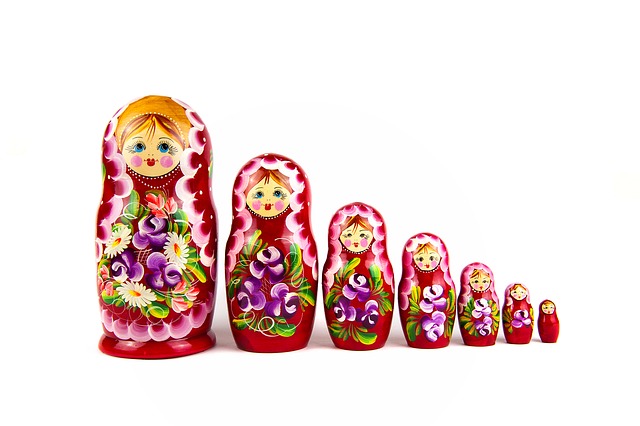If you’re reading this blog post, it must mean you are intrigued by the Russian language. You might be attracted by the beauty of the language, the melody of its sound, or be simply an aspiring linguist looking for a challenge. Whatever your reasons might be, this blog is bound to surprise you with a few facts about the wonderful Russian language that we bet you didn’t know!
#1 One of the Official Languages of the United Nations
Russian has worldwide status as one of the official languages of the United Nations. The number of Russian speakers worldwide is thought to be in the region of 220 million. As a result, 10 percent of the world’s population communicates in Slavonic languages (a group of closely related languages of the Slavic peoples and a subgroup of Indo-European languages), and of these 60 percent speak Russian.
#2 ‘O’ut of here!
In 1969, a novel “La Disparition” was written by Georges Perec. One of the peculiarities of this novel is that it doesn’t have the letter “e”, which makes it odd as it’s the most frequent letter that appears in French! The same principle was used to translate the book into English, German, and Italian. There was no “e” in those translations. As for the Russian version, the novel was translated in 2005 by Valeriy Kislov and it doesn’t have the letter “o” as this is the most frequent letter in Russian.
#3 Russian is the most widespread language in Eurasia
In case you were wondering, Eurasia is the combined landmass of the continents of Europe and Asia in the northern part of the Earth… With over 170 million native speakers, Russian is the eighth most-spoken language in the world. However, due to Russia’s enormous size, native Russian speakers cover the greatest geographical reach out of all the languages in Eurasia. It even beats out China, which has over seven times as many speakers.
#4 Common tongue in space
 Due to Russia’s presence in space technology, and especially in the International Space Station, it’s now a requirement for foreign astronauts to have a working knowledge of Russian. Astrophysics alone will not guarantee you a trip to space so it’s better to equip yourself with some Russian before you head for the stars.
Due to Russia’s presence in space technology, and especially in the International Space Station, it’s now a requirement for foreign astronauts to have a working knowledge of Russian. Astrophysics alone will not guarantee you a trip to space so it’s better to equip yourself with some Russian before you head for the stars.
#5 Russian surnames vary by gender
Russian names consist of a first name, a family name, and a patronymic name, which is the father’s name plus the ending -ovich for a son and -ovna for a daughter. So if a father named Ivan has a son and a daughter, his son’s patronymic name will be Ivanovich and his daughter’s will be Ivanovna.
#6 Russian speakers outperform English speakers at distinguishing shades of blue
 Unlike English, in which the line between ‘light blue’ and ‘dark blue’ is fuzzy, the Russian language splits the color blue into completely different words for dark shades and lighter shades. As a result, it’s been found that Russian speakers can distinguish and categorize different shades of blue more accurately than English speakers.
Unlike English, in which the line between ‘light blue’ and ‘dark blue’ is fuzzy, the Russian language splits the color blue into completely different words for dark shades and lighter shades. As a result, it’s been found that Russian speakers can distinguish and categorize different shades of blue more accurately than English speakers.
#7 Animacy
Russian nouns have animacy. That means that animate nouns are considered more alive than inanimate ones. So in Russian, a dead man (мертвец) is more alive than a corpse (труп), because a dead man (мертвец) is animated and a corpse is not.
Ready to fire up that space rocket? Start your journey in learning Russian right here with online courses that will fit right in your budget!
Govind Nair
Latest posts by Govind Nair (see all)
- A Guide to Islamic and Arabic Education in Dubai - October 20, 2022
- 7 Languages to Win Hearts This Valentine’s Day - February 6, 2021
- Why Language Learning Shouldn’t Be A New Year’s Resolution - December 28, 2020

